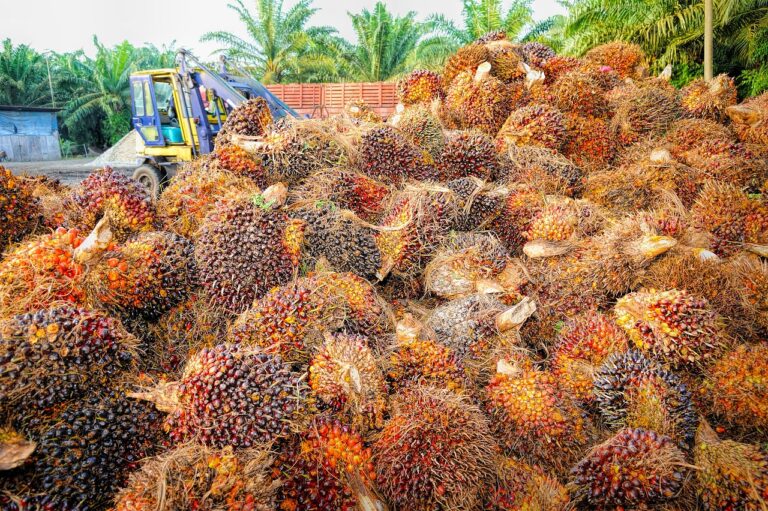The History of Palm Oil

Palm oil is a type of edible oil derived from the fruit of oil palm trees, which are primarily grown in Indonesia and Malaysia. It is one of the most widely used oils in the world, and is a staple ingredient in many food and cosmetic products.
The history of palm oil dates back to the early 19th century, when British traders first introduced oil palm trees to Southeast Asia. Over the next few decades, the production of palm oil expanded rapidly, driven by increasing demand from European countries for vegetable oil. By the mid-20th century, Indonesia and Malaysia had become the world’s largest producers of palm oil.
The high yield of palm oil is a key factor in its popularity as an edible oil. On a per-hectare basis, oil palm trees can produce up to six times more oil than other oil-producing crops, such as soybeans or rapeseed. This makes it an attractive option for farmers and companies looking to maximize their returns on investment.
For example, a single hectare of oil palm trees can produce up to 4,000 to 6,000 kilograms of palm oil per year, compared to only 600 to 800 kilograms of soybean oil or 500 to 600 kilograms of rapeseed oil per hectare. This higher yield allows for a lower cost of production, which makes palm oil more affordable for consumers.
In addition to its high yield, palm oil is also prized for its versatility and stability. Unlike other vegetable oils, palm oil remains solid at room temperature, making it ideal for use in products such as margarine, shortenings, and snack foods. Its neutral taste and high smoke point also make it a popular choice for frying and baking.
Its popularity in soap making is another testament to its versatility. Palm oil is an ideal ingredient for soap making due to its hardness, creamy lather, moisturizing properties, and conditioning benefits, making it a popular choice for soap makers and consumers alike.
In addition to these properties, palm oil is also an important source of biofuel, as well as a versatile ingredient in the production of many other products, such as candles, cosmetics, and personal care products. The high yield of oil palm trees and its ability to thrive in a variety of climates have made it a popular crop for farmers around the world.
However, the expansion of oil palm cultivation has not been without its challenges. Large-scale oil palm plantations require significant amounts of land, and the conversion of forests and other ecosystems to make way for these plantations has led to widespread deforestation, habitat loss, and greenhouse gas emissions.
In response to these concerns, the Roundtable on Sustainable Palm Oil (RSPO) was formed in 2004. The RSPO is a global organization that seeks to promote the sustainable production of palm oil by setting environmental and social standards for companies that produce, trade, or use the oil.
One of the key ways that the RSPO promotes sustainability is by encouraging companies to adopt “best practices” for palm oil production, such as minimizing the use of pesticides and fertilizers, protecting wildlife habitats, and ensuring that the rights of local communities are respected. Companies that meet the RSPO’s standards are certified as sustainable, and their products are labeled as such.
In recent years, the RSPO has been successful in raising awareness about the need for sustainable palm oil production, and many major companies have committed to sourcing only RSPO-certified palm oil. This has led to an increase in the amount of sustainable palm oil on the market, and has helped to reduce the environmental and social impact of the industry.
Palm oil plays a key role in the development of some of our products that without, would make them unviable. As a result, we’re committed to only using RSPO sourced sustainable palm oil.